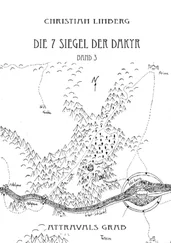Then she observed something else.
Something horrible.
Riojas had always used protection with her. Lately, he’d become careless. He was usually drunk or coked up.
She missed a period. Then another.
One morning she woke completely consumed with nausea and spent half an hour on the floor of the marble bathroom, staring at her warped reflection in the gold-leaf fixtures.
She decided she would kill herself.
She came to this decision calmly and rationally.
There were knives in the kitchen.
There were two swords mounted above the fireplace in the den. She would put one of them right through her, through his monstrosity, before anyone could stop her.
Riojas was away. She cleansed her face, meticulously applied the French makeup Riojas had brought for her, dressed in a charcoal pantsuit she thought suitable for a funeral.
The armed guards he kept stationed around the house were fortuitously absent from the den.
The swords appeared to be ceremonial. Japanese, she guessed—delicately curved steel fixed to bright hand-painted hilts. They were hung on nails, crossed at midblade.
She was reaching for one of them when she felt it. Or maybe she just imagined she had.
Like a kick in the gut.
She’d touched the instrument of her own death, and something had moved in the pit of her stomach. She sank to the floor.
She understood. She knew what it was.
More than that. She knew she couldn’t bring herself to kill it.
It was half her.
It means I can have grandbabies for you, she’d once whispered to her mother, Galina. Maybe she remembered saying it that morning. Maybe it gave that tiny movement in her belly a face, a place in the world.
She hovered between despair and worse.
She’d made a decision to live, but it was a decision impossible to live with . So she made another kind of decision.
When Riojas returned from Bogotá, Claudia feigned happiness, guiding his hand onto her stomach as if helping him claim new territory. Another piece of the world ready to be affixed with his monogram—those cartoonish-looking R s prominently displayed on every one of his handkerchiefs, napkins, undershorts—anything capable of bearing thread.
He began pampering her. Within limits, of course. She wasn’t his wife. He had one of those back in Bogotá, in addition to three obscenely rotund children. He couldn’t squire her around town. But he showed what might be termed deference . The leash grew looser. A captured rebel, even one showered with mink coats and five-hundred-dollar shoes, might run. But a girl carrying his child?
He stopped talking about the women who’d crossed him.
Except for the day she told him.
He asked for sex and she turned him down, pregnancy being a convenient excuse, one to be added to all the others.
Of course, he said, he understood. But before leaving her room he turned and spoke to her.
If you ever try to leave with my baby, I’ll hunt you down and kill you. Both of you. However long it takes, no matter where you’ve gone. Do you understand?
She nodded, forced herself to smile, as if that were a sentiment worthy of admiration. A macho declaration of love.
Good, he said.
She began venturing further. Past the tiger cages. Down a twisting dirt path into the jungle. She had smelled salt air. The hacienda’s property ended on a bluff overlooking the Caribbean, where a small fishing village sat directly below the cliff. Skiffs sat half beached on the sand, spidery nets drying in the sun.
A bodyguard still came with her, but the distance between them seemed to increase in proportion to her swollen stomach. He’d often leave her alone with a book, let her nap undisturbed on one of the hammocks overlooking the water.
She befriended the zookeeper; in addition to the tigers, there were ostriches, llamas, chimpanzees. His name was Benito, and unlike the other men in Riojas’ employ, he seemed to lack the psychotic gene. He’d been trained in zoology. He let her know that feeding live horses to the tigers wasn’t his idea. Feeding two-legged things to them wasn’t either.
A job was a job.
He let her watch as he fed them freshly cut hunks of sheep and cattle, venturing into the cage dangling the day’s lunch from a long hooked pole.
Claudia waited for Riojas to make one of his numerous trips.
She slipped out of bed at 3 a.m. She opened her top drawer, removed a change of clothes, wrapped them around the kitchen knife she’d slipped into the waistband of her pants.
She’d unlocked one bay window in the den before retiring. She opened it wide enough to slip out—no mean feat considering her swollen stomach. She stepped out onto the blue grass.
She’d rehearsed this at least a dozen times.
She could’ve walked the route in her sleep.
She waddled past the tiger cage to the zookeeper’s shack.
She removed the keys from the bent nail. She pushed the sleeve of her shift back to the elbow, pulled out the knife, and placed it against her skin.
She used the extra clothes she’d taken from her drawer to soak up the blood. She walked back out to the tiger cages and pushed the bloody clothes through the bars.
Claudia carefully placed the keys into the cage-door lock and left them dangling there.
She turned to the path that led to the sea.
She was buying time.
In the morning they’d discover she was missing. They’d find the keys to the tiger cage still sitting in the lock. As if someone had let themselves in and locked the door behind them to ensure that there would be no way out. In case they lost their courage and changed their mind. They’d discover her bloody clothes. Shredded to pieces.
Riojas would be called in Bogotá. He’d think back to their last night together. He’d replay everything. Her smiles and laughter and demure assurances, and he’d see only lies. Had she killed herself? Had she really ?
Eventually, he’d know the truth. They wouldn’t find any ground-up bones. They’d understand the charade she’d perpetrated, and Riojas would start to make good on his promise.
If you ever try to leave with my baby, I’ll hunt you down and kill you. Both of you. However long it takes, no matter where you’ve gone. Do you understand?
Maybe Claudia heard those words as she walked through the jungle that night and down to the sea. As she sat and crouched in one of the slowly rocking fishing skiffs and waited for the fishermen to appear like ghosts out of the early-morning light . . .
THE SOUND OF A CRYING BABY. IT STARTLED JOANNA BACK TO reality. Back from that hacienda and the tiger cage and the jungle.
Joelle had woken up.
It was her cold. Galina reached over and wiped Joelle’s nose, cleared the crust from her eyes with a tissue. Joanna gave her the bottle, urged the nipple into her mouth, gently rocked her. Soon Joelle’s eyes grew sleepy, fluttered, closed into two tiny slits.
Galina was hugging herself as if she were suddenly freezing.
“What happened, Galina?” Joanna asked. “What happened to Claudia?”
GALINA SPENT THE EMPTY DAYS DUTIFULLY FEEDING AND BATHING and powdering other people’s daughters.
She ritually and repeatedly cleaned house.
She discovered bits and pieces of Claudia and arranged them in a kind of shrine. Old birthday cards. Photographs. Letters. Half-burned incense candles. Little items of mostly cheap jewelry. She did what people are supposed to do at shrines. She prayed for a miracle.
Sometimes they actually happen.
Sometimes you wake up and dress yourself in the same dowdy shift as the day before. You sit down at the kitchen table and listlessly eat a breakfast of stale corn cakes and fruit, because you’re supposed to eat, even if you have no appetite. You vacuum a carpet you’ve already vacuumed enough times to wear smooth. You dust every piece of furniture in the house. You rewash the dishes and scrub the floor. Then you sit back down at the kitchen table because it’s time to eat lunch.
Читать дальше












